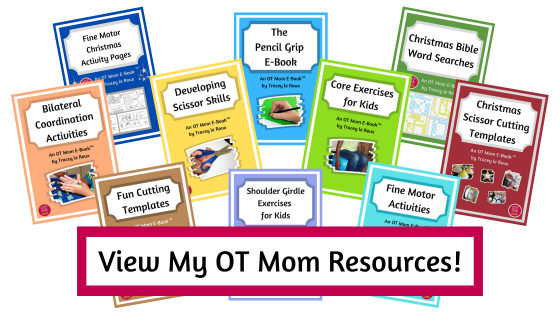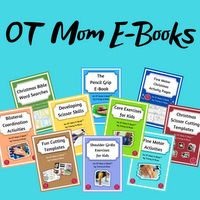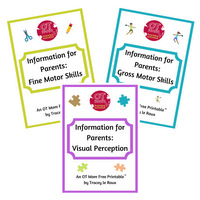- Home Page
- Overview of Sensory Processing
- Sensory Processing Disorder in Babies
Sensory Processing Disorder in Babies and Toddlers
Identifying sensory processing disorder in babies may help parents and caregivers to understand “difficult” infants, and find ways to help them thrive.
When a baby has “colic” or is otherwise fussy and difficult to settle, it is worth considering whether a sensory processing disorder (SPD), also called sensory integration dysfunction, is the underlying cause.
This page aims to help parents understand how their infant may be affected by poor sensory processing:
I sometimes link to products (#Ad) that are similar to those I use and love. If you do purchase something through my links, I will receive a small commission that helps support my site - thank you!
Key Takeaways For Busy Parents:
- Sensory integration and processing issues can cause babies and toddlers to be over-responsive (fussy, defensive) or under-responsive to their environment.
- Sensory issues may affect feeding - gagging, being very picky, or even tiring easily when sucking.
- Your infant may have an averse response to touch - may dislike being cuddled, or become very distressed during bathing and diaper changes.
- Babies who struggle to integrate and process sensory information may be overwhelmed by their environment.
- Most babies show some of these signs occasionally. However, if the symptoms are persistent, and are affecting milestones and well-being, then seek help from an occupational therapist or other professional. Do NOT self-diagnose.
Sensory Processing Disorder In Babies
Sensory processing disorder in babies may often present as a sensory modulation disorder, resulting in a baby who may be under-responsive to sensory stimulation (lethargic) or over-responsive (sensory defensive).
Other aspects of sensory integration dysfunction that may be less obvious in babies and toddlers are motor planning (praxis) delays, bilateral coordination delays and sensory perceptual disorders.
As a result, two babies who have been diagnosed with SPD may behave very differently to each other, as SPD affects each child differently.
This page covers the main areas of an infant's functioning that may be affected by sensory processing issues.
Remember, all infants and toddlers may show one or two indications of dysfunction at various times (especially when overtired or overstimulated or neglected) – but when symptoms are persistent and affect the infant’s relationships, well-being and general functioning compared to other children the same age, then professional help should be sought.
 Baby starting to get overstimulated
Baby starting to get overstimulatedSPD can affect feeding
-
A sensory under-responsive baby may also have a degree of low muscle tone that makes it harder to suck, resulting in the infant tiring easily and perhaps not feeding effectively.
 Feeding can be an issue
Feeding can be an issue-
Later, the same child may be a messy eater, as placing the food
in the mouth and chewing effectively is a challenge.
- A baby who is sensory defensive may struggle to feed initially, because drawing the nipple into the mouth causes a gag reflex.
Although the baby may eventually learn to tolerate the nipple or teat in order to survive, he/she may still be a fussy eater later, gagging on different textures of food, and refusing to touch or handle finger food. - The smell of food may also be off-putting. The sensory defensive baby or toddler may prefer bland food with a similar texture, and may avoid foods where the ingredients are mixed up, such as stews and soups.
- A toddler with low muscle tone or poor motor planning may struggle to know how much force to use to lift a cup of juice, and spills may be frequent. Poor motor planning or poor bilateral coordination may also result in messy and uncoordinated eating.
SPD can affect their response to touch
-
An oversensitive baby may become very distressed at diaper
changes and clothing changes and need as little fuss as possible.
Some babies will find warm bathwater soothing; others will fuss at all the added sensations. - An infant with sensory processing disorder may dislike being cuddled, swaddled, or may hate being moved through the air such as on a swing.
- A toddler with sensory integration dysfunction may show his over-sensitivity to touch by being incredibly fussy about the texture and type of clothing such as long sleeves, polo necks etc.
Some may prefer to wear as little as possible and be barefoot; others may prefer to be covered from head to toe to protect the body from unexpected stimulation. Such children may also dislike walking on rough surfaces such as grass or sand. - Toddlers with SPD may also avoid messy activities such as finger-painting, playdough and making mud pies.
- An sensory under-responsive infant or toddler, however, may seem to not notice the various textures of clothing and surfaces and may not even notice feeling hot or cold, or if the hands and face are dirty. This infant may be slow to react to pain and may not notice when small scrapes and bruises happen.
SPD can affect their response to their environments
-
Although most babies get overwhelmed when they are in a noisy, busy environment for too long, infants with SPD may have a particularly low tolerance of noise, bright lights and busy places.
- They may also struggle to feed in an unfamiliar environment.
 Overwhelmed baby
Overwhelmed babySensory processing disorder in babies and toddlers can affect the way they play with toys.
-
Infants with sensory processing disorder may not play with toys in the same way as their peers.
- They may avoid exploring toys with the hands or mouth, or be limited in the movements they make with the toys.
 Not exploring toys
Not exploring toys-
Parents may notice that there are some toys (eg textured or noisy toys) that are always avoided.
- Sensory processing disorder in babies may result in certain motor developmental milestones being attained slowly or not at all.
- Sitting, crawling and walking may be delayed, and crawling may be omitted, which may indicate a problem with poor postural control, delayed motor planning skills and/or poor bilateral integration skills.
How to help
These are only a few of the symptoms that may alert you to sensory processing disorder in babies and toddlers. Please know that these symptoms may also indicate other serious, underlying disorders, so please do not attempt to diagnose sensory processing disorder in your own child.
Please use this checklist from an SPD website to get a clearer idea of your concerns, and then contact your nearest health professional/occupational therapist for treatment and advice.
If sensory processing disorder is diagnosed, then there are lots of wonderful books to guide you, the parent, through the childhood years.
I have reviewed a few SPD books on this page of my site,
and from experience with my own children, can testify that having a
good resource book can be a lifeline in confusing situations.
With support, you will be able to help your child cope in a world that may otherwise seem overwhelming to both of you!
- Home Page
- Overview of Sensory Processing
- Sensory Processing Disorder in Babies
Share this page to help others!
Related Pages On My Site
Didn't find what you were looking for? Try a search of my site!











